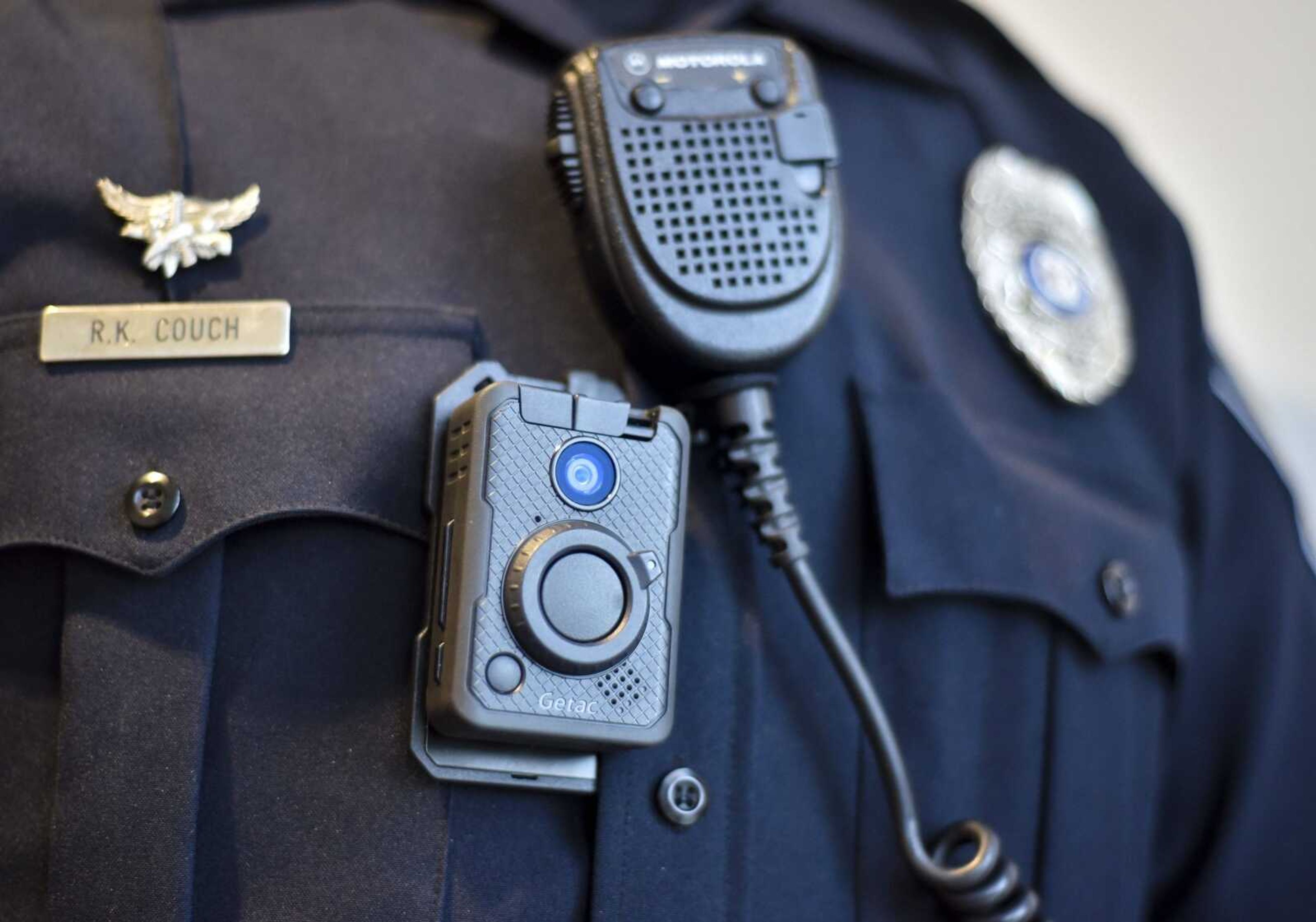Cape police to start using body-worn cameras soon
Cape Girardeau police officers in the patrol and traffic divisions could be using body-worn cameras within two to three months, police officials said Wednesday. After several years of testing different cameras, the department has settled on the Getac camera system, said police Cpl. Ryan Droege...
Cape Girardeau police officers in the patrol and traffic divisions could be using body-worn cameras within two to three months, police officials said Wednesday.
After several years of testing different cameras, the department has settled on the Getac camera system, said police Cpl. Ryan Droege.
The city plans to enter into a three-year, $154,000 contract for 50 cameras plus the computer network to store the video and audio, he said.
In addition, the contract includes replacing all 50 cameras after the first two years of the contract, according to Droege.
Lawyers are going over the contract in preparation for ordering the cameras, he said.
The public can learn more about the police cameras at two public forums, which will be held in the community room at the police station, 2530 Maria Louise Lane.
Sessions will be held at 7 p.m. May 24 and at 10 a.m. June 2.
Droege said he will discuss the use of body-worn cameras and answer questions from the audience.
The rectangular cameras, each smaller than a pack of cigarettes, can be attached easily to police uniforms shirts. Officers will activate the cameras with a push of a button, he said.
Droege, the department's crime analyst, has led the effort to implement the camera system.
"We hope to be using them in July or August," Droege said.
The patrol and traffic divisions have more than 40 officers combined who will use the cameras. The remaining cameras will be held in reserve for use by other officers when needed and as backups, he said.
Droege said each camera has a small "spin wheel" on it that allows an officer to catalog the video on the scene. When officers return to the station, they would upload the recordings to the "cloud," a network of remote servers hosted on the internet to store, manage and process data.
Droege said storage is vital because some of the recordings may have to be retained for years.
Any footage in which no case was opened likely would be deleted within 60 days, he said.
Police chief Wes Blair and Droege said there are several benefits to using body-worn cameras.
Blair said cameras provide "transparency about what it is we do."
The recordings also can be used as evidence in cases, including those where there have been allegations of police misconduct and complaints about use of force.
Blair said, "Now it is not just a he-said, she-said thing."
Droege said he doesn't expect there to be many of those cases alleging misconduct. The Cape Girardeau Police Department receives, on average, about five complaints a year against police officers, he said.
Droege said studies of the use of body-worn cameras by other police departments have shown suspects often are more likely to plead guilty when they know the incident has been recorded.
Blair said with this camera system, local prosecutors will be able to access the recordings from their own computers, eliminating the need for officers to copy them onto CDs and deliver to the prosecutor's office.
A major benefit is supervisors can review the recordings with officers, providing an opportunity to better train police and point out how to improve their interactions with the public, Droege said.
As for the public, it would have little if any access to the camera recordings.
Within the past couple of years, Missouri has enacted a law barring public access to body camera and vehicle camera footage during ongoing investigations.
Both Droege and Blair said they expect there will be "a learning curve" for officers using this new technology.
Blair said having only a three-year contract will allow the department to take advantage of future improvements in body-worn cameras.
"We know that technology is going to change," he said.
mbliss@semissourian.com
(573) 388-3641
Connect with the Southeast Missourian Newsroom:
For corrections to this story or other insights for the editor, click here. To submit a letter to the editor, click here. To learn about the Southeast Missourian’s AI Policy, click here.










